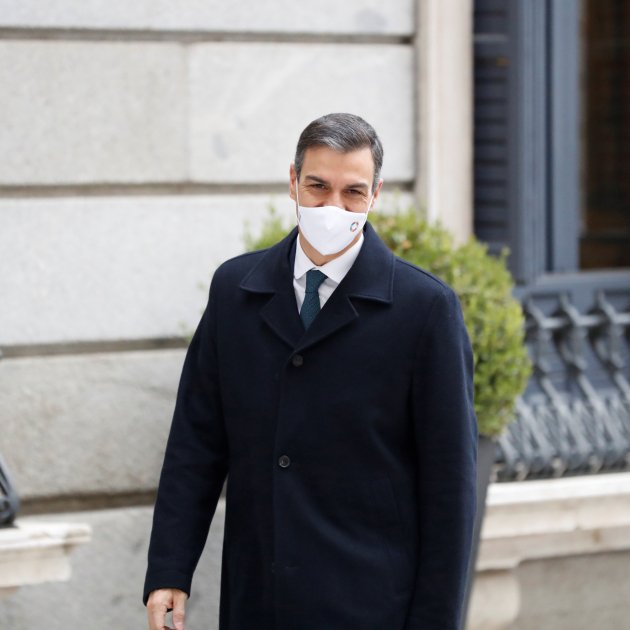The situation of the Covid second wave in Spain is worrying. But nevertheless, the extension of the proposed state of alarm, of up to six months, was vigorously debated by the opposition. Finally, though, the imperative of the pandemic carried the vote with ease and, with a few tweaks, prime minister Pedro Sánchez managed to extend the country's exceptional legal status, necessary for the imposition of many Covid restrictions. While the time frame of six months remains, the door has been opened to lift it at four months, starting on March 9th. It will be then when the conference of autonomous presidents will review its validity based on the epidemiological situation. Sánchez will be required to make a parliamentary defence of the measures every two months, and health minster Illa, on a monthly basis.
So in the end, it was arithmetically straightforward. The final score: 194 votes in favour, 53 against and 99 abstentions. The abstention by the opposition PP flattened the path. Catalan parties Junts per Catalunya and the CUP, along with Basque group EH Bildu also abstained. For their part, the other pro-independence Catalan parties present, ERC and PDeCAT, as well as the Basque Nationalists PNB and rightists Ciudadanos voted in favour. The only votes against were from Vox and the solitary member of Fórum Asturias.
Under Spanish law, the state of alarm is a legal framework for an exceptional period, but the specific measures it contains depend on what is included when it is voted in. This is a very different state of alarm from that of the spring, less centralised and more limited in terms of its powers to restrict mobility. The autonomous community presidents can impose night curfews and even perimeter confinements in all or part of their territory, as most autonomous communities have already done. On the other hand, they cannot apply stay-at-home confinements - something the Catalan government has been considering and which France put back into practice yesterday.
Pedro Sánchez was present in the chamber for three quarters of an hour, but Salvador Illa spoke. "It's time for adult politics, for consensus," said the health minister, addressing PP leader Pablo Casado in particular. "I hope that, for the good of all, you choose to join forces with the government to give a strong response to the second wave," he added.
The Spanish government has, with just a few tiny concessions, achieved its goal: avoiding the political scenario of the first wave, when a minority government faced must-win parliamentary votes every two weeks, which became increasingly difficult to carry out.
"Critical abstention" from the PP
Although he was not expected to speak, Pablo Casado took the podium to confirm the PP's abstention, despite rejecting the six-month deadline, which he described as a "legal violation". In fact, he made a very harsh intervention, accusing Pedro Sánchez of leading an executive that "likes to govern without legislative counterweight" "to govern as they want because they govern very badly.". But the party then abstained, so as not to leave the autonomous communities without a "legal mechanism" to apply restrictions.
Break between JxCat and PDeCAT
In this vote the rupture between Carles Puigdemont's party JxCat, and the other pro-independence Catalan party it emerged from, PDeCAT, has been consummated, and they voted differently to the extension. The former abstained "out of responsibility", the latter voted in favour. The largest Catalan pro-independence party in Congress, ERC, also voted in favour, after seeing its minimum amendments accepted. They did so because they have a “sense of state, of our state,” ERC spokesperson Gabriel Rufián justified. On the other hand, the CUP hesitated, but finally pressed the abstention button, along with the Basques EH Bildu. The anti-capitalist Catalan party argued that that the current state of alarm, in its terms, is based on “restriction" and not on "guaranteeing the health of the population in all its aspects."
